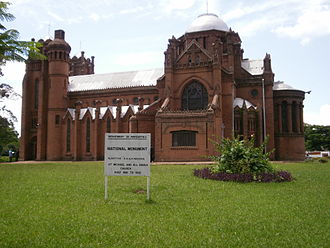By Burnett Munthali
The Church of Central Africa Presbyterian (CCAP) has long been a significant force in Malawi’s religious, social, and political landscapes.
Since its establishment by missionaries, the CCAP—with its various synods—has not only shaped the country’s spiritual life but has also played an influential role in national politics.
In its early years, the CCAP was seen aligning with the Malawi Congress Party (MCP), then the dominant political force under the leadership of Hastings Kamuzu Banda.
The MCP’s role in gaining independence from colonial rule earned it widespread support, including from sectors within the CCAP, creating a period of early cooperation between the church and the ruling party.
During this time, both the CCAP and MCP shared mutual aspirations of nation-building and development, and their relationship was marked by collaboration and public support.
However, as Banda’s rule grew more authoritarian and the MCP cemented itself as the sole political party in a one-party state, the nature of this relationship began to shift.
The CCAP, while having once supported the MCP, increasingly found itself at odds with the government’s suppression of dissent and basic human rights.
This tension became particularly pronounced through the actions of the Livingstonia Synod, one of the CCAP’s most politically vocal branches.
The Livingstonia Synod emerged as a bold advocate for political reform, speaking out against oppression and calling for a return to democratic principles.
As opposition to one-party rule intensified in the late 1980s and early 1990s, the CCAP joined other civil society actors in pushing for multiparty democracy.
Despite its historic ties with the MCP, the CCAP took a courageous stance, aligning with the voices demanding political change and accountability.
This activism contributed significantly to the momentum that culminated in the 1993 national referendum, where Malawians overwhelmingly voted to end the one-party system.
The CCAP’s role in this transformative period illustrates the complexity of its relationship with power—shifting from supporter to critic in the face of growing autocracy.
While the church had once been seen as a partner to the MCP, it maintained its own identity and moral compass, asserting itself when it believed the principles of justice and human dignity were under threat.
Today, the CCAP remains an important institution in Malawi, often speaking out on social justice, governance, and ethical leadership.
Its historical journey with the MCP is a testament to how religious institutions can evolve from political alignment to prophetic resistance, always with the greater good of the nation in mind.




